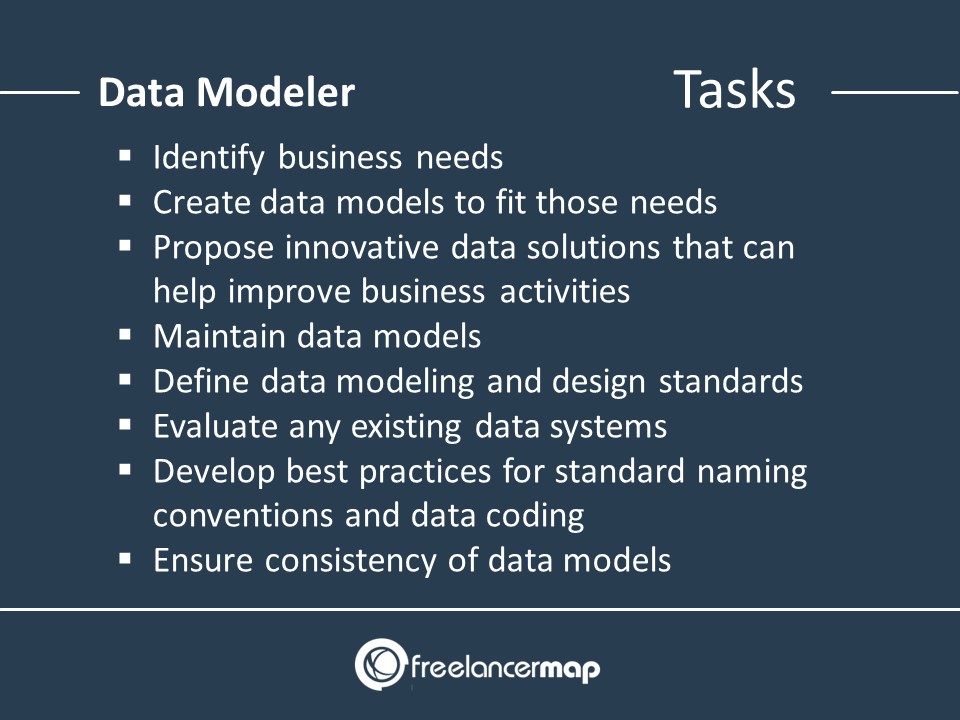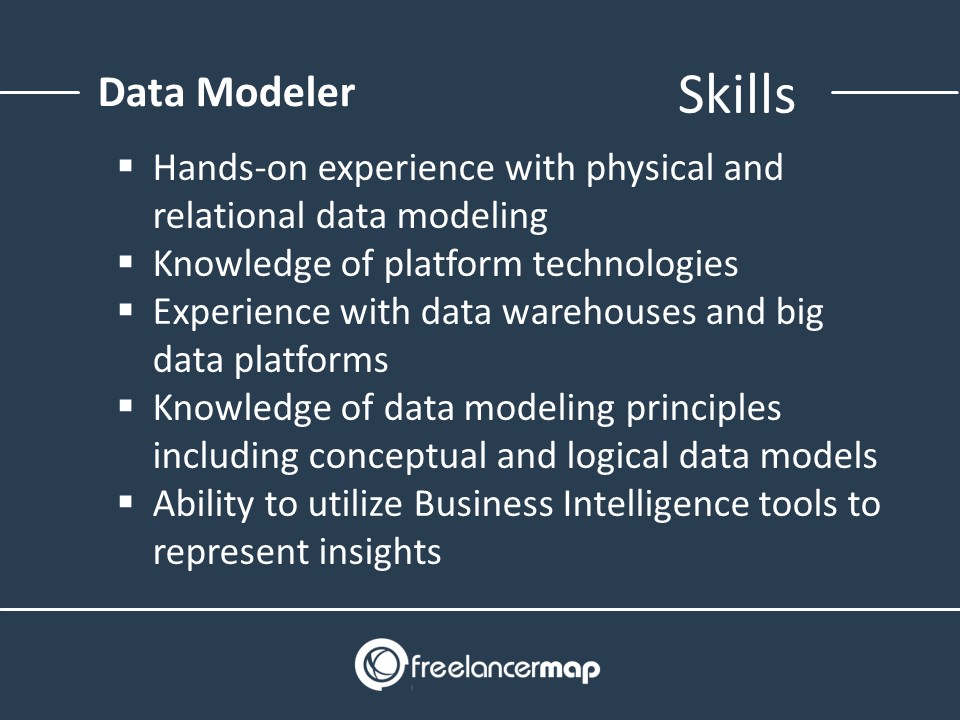Data modelers are responsible for building an organizational structure for a company’s data. They design computer databases that translate complex data into usable systems and work with data architects to create data models that meet organizational needs. What does a data modeler do?
What is data modeling?
Data modeling is the formalization and documentation of processes and events that occur in the creation of a data model.


The tools and techniques of data modeling are used to capture and translate complex system designs into clear representations of data flows and processes, which creates a template for new developments or redesign.
Data models guarantee consistency in naming conventions, standard values, and security while at the same time ensuring data quality. They emphasize what data is needed and how it should be organized.
Responsibilities of a data modeler
A data modeler is primarily in charge of identifying a business’s needs and creating data models to fit those needs. By using their understanding of data flows, they propose innovative data solutions that can help improve business activities.
They also maintain the data models they create, define data modeling and design standards, and evaluate any existing data systems.


They develop best practices for standard naming conventions and data coding to ensure consistency of data models. Data modelers are also in charge of evaluating data models and databases for variances and discrepancies as well as troubleshooting and optimizing data systems.
When needed, they perform reverse engineering of physical data models from databases and update and optimize local and metadata models.
What are the responsibilities of a data modeler?
- Identify business needs
- Create data models to fit those needs
- Propose innovative data solutions that can help improve business activities
- Maintain data models
- Define data modeling and design standards
- Evaluate any existing data systems
- Develop best practices for standard naming conventions and data coding
- Ensure consistency of data models
- Evaluate data models and databases for variances and discrepancies
- Troubleshoot and optimize data systems
- Perform reverse engineering of physical data models from databases
- Update and optimize local and metadata models
Looking for data modelers?
Find the right freelancer here
Skills of a data modeler
A data modeler has hands-on experience with physical and relational data modeling. They are well-versed in data platform technologies and have experience with data warehouses and big data platforms.
They have knowledge of data modeling principles including conceptual and logical data models and have the ability to utilize Business Intelligence tools to represent insights.


Data modelers are experienced in translating relational data models into XML and have knowledge of metadata management and related tools. They also have strong knowledge of mathematical foundations and statistical analysis.
They have experience in team management, are able to communicate clearly and effectively and have excellent presentation skills.
What are the skills of a data modeler?
- Hands-on experience with physical and relational data modeling
- Knowledge of platform technologies
- Experience with data warehouses and big data platforms
- Knowledge of data modeling principles including conceptual and logical data models
- Ability to utilize Business Intelligence tools to represent insights
- Experience with translating relational data models into XML
- Knowledge of metadata management and related tools
- Knowledge of mathematical foundations and statistical analysis
- Experience in team management
- Strong communication skills
- Effective presentation skills
Background
Data modelers typically have a Bachelor’s degree in computer science, information technology, data science or a related field. Some also choose to obtain a Master’s degree, though this is not a must.
You can also boost your career as a data modeler by receiving certifications and additional training. A few options for these are as follows:
- Data Warehousing for Business Intelligence Specialization
- CBDM: Certified Business Data Modeler
- Data Science with R Language Certification Training
- Data Modeling and Regression Analysis in Business
Salary
The salary of a data modeler depends primarily on the industry they work in. Factors like job position, experience and skills also play a role. A beginner modeler can earn up to $74,900 whereas one in a more senior position can earn up to $126,100. The average salary of a data modeler is $98,900.
In Germany, the average salary range is €53,400 whereas in the UK, it is £97,500.
How much does a data modeler earn?
| Junior | $74,900 |
| Average | $98,900 |
| Salary | $126,100 |
How much does a freelance modeler earn?
| Average rate Data Modelers (2022) | $86/hr |
According to freelancermap’s price and rate index in September 2022, freelance Data Modelers charge $86/hour on average.
Freelance rates in Data Modeling range between $71 and $101 for the majority of freelancers.
Considering a freelance rate of $86/hour, a freelancer would charge $688/day for an 8-hour working day.
